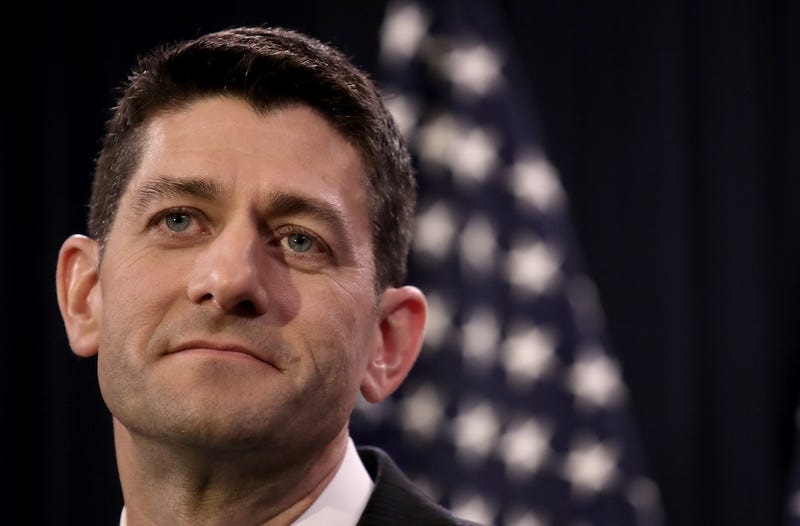Paul Ryan: A Very Dangerous Man. Can His Theory Work?

Today’s enactment of the Department of Labor’s fiduciary rule, which
protects regular people from being swindled by financial advisors, is an
opportune time to reflect on the fact that Paul Ryan led the opposition to this rule,
meaning that he is in favor of regular people being swindled by the
financial industry. But his undercover fealty to corporate interests is
positively run-of-the-mill compared to the contrast between his
reputation (caring, concerned with the less fortunate, a believer in the redemption of government) and the reality of his budget proposals.
Among the small class of journalists who crunch numbers, it has never been a secret
that Paul Ryan’s economic plans are either ridiculously impossible or
ridiculously savage, depending on how you interpret his goals. Still,
that fact has not prevented the birth of a cottage industry of hagiography portraying Ryan as the Republican Party’s great uniter—“a man of faith and family values whose only real baggage is the suitcase he carries home each weekend to Wisconsin.”
How does that comport with the reality of Paul Ryan’s stated
priorities? The year before Ryan ran for Vice President, the
Congressional Budget Office released its analysis
of his dream budget—the budget that established him as a serious
Washington figure, the budget that represents what Paul Ryan would have
our federal government do it was up to him. This is a man whose name is
still, five years later, being tossed around
as Republican presidential nominee this year, despite the fact he is
not running.
This is a very powerful and popular national political
figure. Did you know, friends, that Paul Ryan would like to defund—to in
essence abolish—vast swaths of the federal government? Including the
parts of the federal government that take care of poor people, and of
public schools, and of a lot of other things used by just about
everyone.
The CBO’s report explains
the formula Ryan uses to slash the part of the federal budget where all
the useful stuff is, apart from Medicare and Social Security:
The path for all other federal spending excluding interest—that is, for discretionary spending and mandatory spending apart from that for Social Security and the major mandatory health care programs—was specified by Chairman Ryan’s staff. The remaining part of mandatory spending includes such programs as federal civilian and military retirement, the Supplemental Nutrition Assistance Program, unemployment compensation, Supplemental Security Income, the refundable portion of the earned income and child tax credits, and most veterans’ programs. Discretionary spending includes both defense spending and nondefense spending—in roughly equal amounts currently. That combination of other mandatory and discretionary spending was specified to decline from 12 percent of GDP in 2010 to about 6 percent in 2021 and then move in line with the GDP price deflator beginning in 2022, which would generate a further decline relative to GDP. No proposals were specified that would generate that path.
What are the implications of such a spending reduction? The economist Dean Baker lays it out quite clearly. Bolding ours:
The analysis shows Ryan’s budget shrinking everything other than Social Security and Medicare and other health care programs to 3.5 percent of GDP by 2050. This is roughly the current size of the military budget, which Ryan has indicated he wants to increase.
That leaves zero for everything else.
Included in everything else is the Justice Department, the National Park System, the State Department, the Department of Education, the Food and Drug Administration, Food Stamps, the National Institutes of Health, and just about everything else that the government does.
Just to be clear, CBO did this analysis under Ryan’s supervision. He never indicated any displeasure with its assessment. In fact he boasted about the fact that CBO showed his budget paying off the national debt.
No comments:
Post a Comment